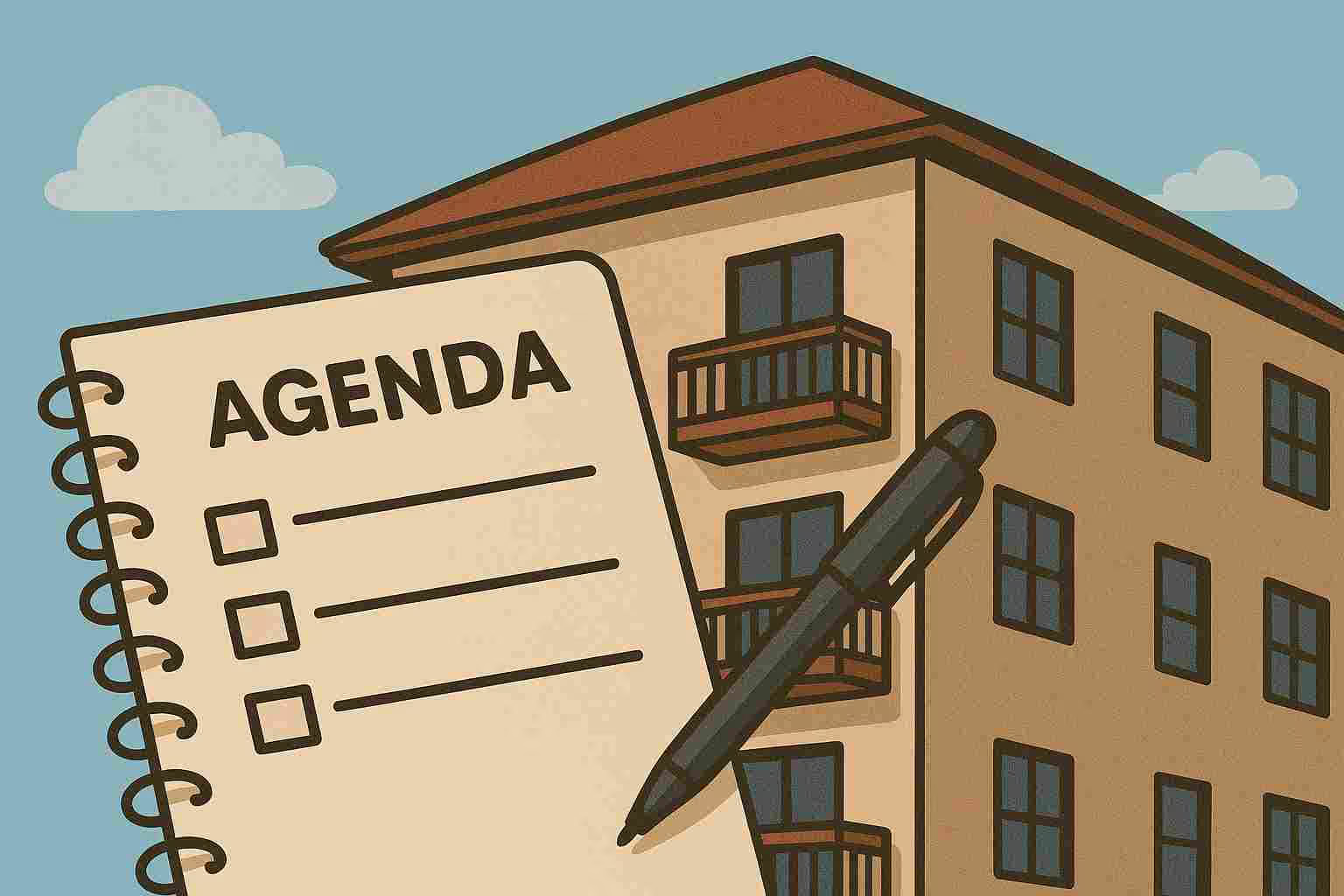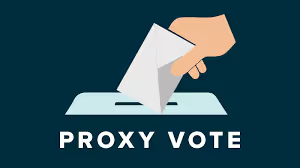
Notice of the Condominium Association Annual Meeting
Condominium associations across the U.S. are required to hold an annual general meeting (AGM) to review finances, vote on important matters, and discuss the future of the community. To ensure smooth operations and strong homeowner participation, proper meeting preparation—starting with the notice of meeting—is essential.
In this guide, we walk you through who can call a condo meeting, what the notice must include, and how to streamline the process using digital tools.
Who Can Call a Condo Association Meeting?
In most states, the condominium association is required to hold an Annual General Meeting (AGM) once per year. This meeting is typically called by the property manager or condo board. Its purpose is to cover items such as:
• Budget approval
• Major maintenance or renovations
• Elections of board members
• Updates on the community
Additionally, a Special Meeting can be called outside the regular schedule to handle urgent or unexpected matters. Depending on your bylaws, a special meeting may be requested by:
• The condo board
• The property management company
• A group of homeowners
What Must Be Included in a Condo Meeting Notice?
The meeting notice is a formal invitation to all unit owners and must be sent out according to the deadlines and delivery methods outlined in your community’s bylaws or state law—often at least 21 days in advance.
A standard condo meeting notice should include:
• Date, time, and location of the meeting
• Information on whether the meeting is in-person, virtual, or hybrid, including login instructions if applicable
• A detailed agenda listing all topics to be discussed or voted on
• A proxy form to allow another owner to vote on your behalf if you can’t attend
• Supporting documents (e.g. budget reports, proposed changes) to help owners make informed decisions
• Optionally, a mail-in or electronic voting form
Note: These requirements can vary depending on state law and association bylaws, so always consult legal counsel if in doubt.
Who Decides What’s on the Agenda?
The agenda outlines all topics and motions that will be discussed during the meeting. It is usually drafted by the board, in collaboration with the property manager.
Homeowners (unit owners) have the right to request items be added to the agenda—typically by submitting a written request with enough lead time before the notice is sent out. However, if an item is not included on the agenda, it may be discussed during the meeting but cannot be voted on.
Use Online Voting Tools to Simplify the Process
Digital platforms like Voteer help streamline every step of the annual meeting process—from sending out notices to conducting secure online voting.
With Voteer, you can:
✔ Send meeting notices via email or certified electronic mail
✔ Receive delivery confirmations and easily track who opened the message
✔ Send reminders a few days before the meeting
✔ Manage attendance digitally with features like sign-in sheets (in-person or virtual)
✔ Allow hybrid voting, supporting participation from homeowners whether they attend in person or online
Switching to electronic tools boosts participation, saves time, and improves transparency for all stakeholders.
What If You Can’t Attend the Meeting?
If a homeowner is unavailable on the meeting date, there are options to ensure their voice is still heard:
Submit a Proxy
A proxy is a legal document that allows another person to vote on your behalf. Homeowners can assign their vote to another unit owner—or someone else they trust—by completing and signing the proxy form.
Note: Most states prohibit giving a proxy to the property manager or anyone directly affiliated with the management company.
Attend Virtually or Early Voting
If your condo bylaws allow it, meetings may be held virtually or in hybrid format. This makes it easier for homeowners to participate remotely or submit their votes ahead of time via mail-in or electronic ballots.
This flexibility also helps achieve quorum—the minimum number of owners required for the meeting to be valid.
Frequently Asked Questions
You now have a complete overview of the notice for a condominium association general meeting.
Let’s wrap up by covering a few additional points in more detail.
What happens if quorum isn’t reached?
If not enough owners are present or represented by proxy, the meeting must be postponed. A second meeting will need to be scheduled, usually with the same agenda.
How often are condo meetings held?
A general meeting is typically held once per year. Special meetings can be called as needed for urgent matters or large-scale decisions.
What topics are typically on the agenda?
Common agenda items include:
• Approval of financial statements
• Budget and reserve planning
• Election or re-election of board members
• Maintenance or construction projects
• Insurance matters
• Homeowner proposals
Owners may also submit topics for consideration ahead of time, subject to board approval.






